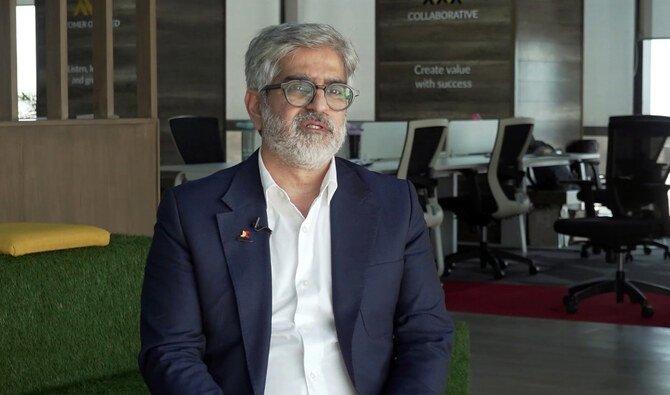JEDDAH: Saudi Arabia’s industrial and mining sectors are harboring promising opportunities for youth and entrepreneurs, the Kingdom’s industry minister has insisted.
Speaking during the Misk Global Forum 2024 in Riyadh, Bandar bin Ibrahim Alkhorayef said that these opportunities go beyond direct investment to include the development of innovative ideas to improve production efficiency, manufacturing quality, and energy conservation in industrial facilities.
He explained that institutions working in industrial and mineral resources have introduced a range of enablers and initiatives to support the growth of entrepreneurial ventures and facilitate investment for young innovators in both sectors, according to the Saudi Press Agency.
The Kingdom ranked third in the Global Entrepreneurship Monitor report for 2023-2024 – a study which assesses the ecosystems of countries worldwide.
Saudi Arabia showed significant progress, with its National Entrepreneurship Context Index score increasing from 5 in 2019 to 6.3 in 2022 and 2023.
The analysis highlighted that this reflects the country’s successful efforts to diversify its economy and foster a supportive climate for business owners. The report also underlined female entrepreneurship, with eight women starting new companies for every 10 men in 2023.
Alkhorayef added that the introduced programs include financial solutions, including the 1K Miles program, designed to help entrepreneurs turn ideas into projects, and the Industrial Hackathon, which allows young innovators to present creative solutions to challenges faced by industrial facilities.
The minister further highlighted that the Kingdom has become a global hub for entrepreneurs, offering them the opportunity to pitch innovative ideas and test their success. He emphasized that the government’s unwavering support for youth creates vast opportunities for the success of their projects.
He emphasized that Saudi Arabia has recently focused on leveraging its strategic assets to develop its industrial sector and boost competitiveness. This includes utilizing its natural resources and technological advancements to compete globally in emerging industries and establish itself as a key player in international supply chains.
During the previous day’s event, the Co-Chair of the Bill and Melinda Gates Foundation, Bill Gates, highlighted the crucial role of innovation in addressing global development challenges and improving the quality of life for vulnerable populations.
Gates emphasized the importance of investing in technology and education as the foundation for a sustainable future, underlining that such investments empower future generations to positively impact their communities.
He praised Saudi Arabia’s leadership in empowering youth, highlighting initiatives like MGF 2024, which focuses on developing young people’s skills and promoting innovation and entrepreneurship. He called the forum a global model worthy of emulation.
Gates also called for strengthened international cooperation to develop joint solutions addressing current challenges.
The co-chair underscored the importance of fostering creativity, teamwork, and collective thinking to build a more sustainable future, highlighting that global collaboration could drive transformative advancements that improve the lives of millions.
The MGF 2024 announced the launch of the “Misk Grand Challenges” initiative in partnership with the Gates Foundation, aiming to inspire young people to propose innovative solutions to global education and citizenship issues, fostering creativity and engaging brilliant minds to address pressing development challenges.
During a panel discussion at the forum, Abdullah Al-Saleem, CEO and co-founder of Mushtari, offered valuable insights on when and how entrepreneurs should seek guidance for their ventures.
“Every time is the right time to seek help,” Al-Saleem said, emphasizing the importance of continuous learning and consultation in business development.
He advocated for a two-pronged approach to seeking advice, distinguishing between general business consultants and industry-specific experts.
“There are two people you have to seek help from: People that know generally about the industry, and people that know specifically about the industry,” he added.


























